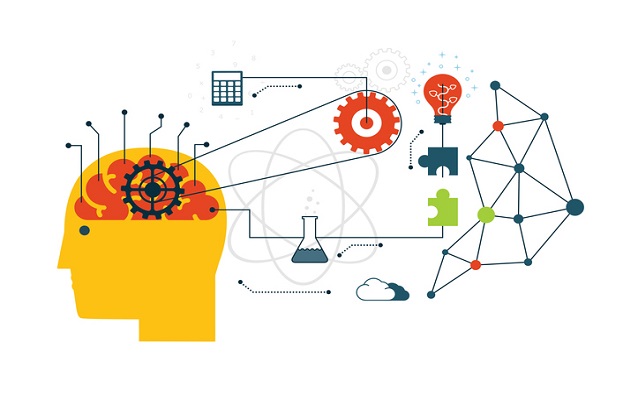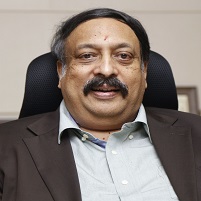Future Trends in Higher Education – Engineering
"The philosophy of engineering" is a term used in western countries. What we understand by this term is that engineering is a philosophy which should be conceptually taught by teachers and understood from an application stand point. Most teachers in India try to teach from standard textbooks which may be outdated. Present day students are not interested in attending classes wherein the teacher repeats from the text book. So it is imperative for the teacher to have a clear understanding with conceptual clarity of the subject and put it across to the student in the simplest possible way. Also, the content of course should be geared towards applications of specific knowledge towards problem solving in industry, society, government and to help the society at large.
In the future, an extensive remodelling of present thinking towards engineering education is absolutely necessary. It is also very important to integrate engineering education with sustainability. There are no barriers or compartments when it comes to application of technology. The convergence of various technologies to produce one product which is useful to the society is the way towards the future.
The future could also be looked at in terms of breaking down the barriers of various disciplines in engineering to move towards "streams". Streams can be looked at as specific areas that would confront mankind in the next couple of decades. For example, water can be considered as a stream. This is because water is envisaged to be in acute shortage in the years to come and it is popular belief that nations would fight wars for water. So it would be quite beneficial for higher education institutions to start a Bachelors or Masters Programme in Water.
In this programme, many concepts of various engineering disciplines would be taught and applied. At the end of the degree course, the student would be a specialist in solving any problem relating to water.
The world is moving towards looking for specialists and the day of the generalist has come to an end. With the advent of new technologies like AI, Machine Learning, IoT, Big Data, Robotics, it is imperative that students in engineering are trained in understanding and solving problems which the industry may face using future technologies.
The job market in the future is going to take a beating, and it is published that 37 crore jobs will be lost in the Tech sector globally. So, the engineering colleges have to gear up to face this challenge. They have to act with a view to improve quality and become globally competitive. They have to focus on knowledge based education and not on education for the sake of just trying to impress people that they are also educators. A severe emphasis should be laid on the breadth of the subject and integrated across academic disciplines. In short, student should be taught how to learn. The 21st century engineering education would revolve around analyzing a specific problem and using knowledge to seek solutions to solve this problem. In order to do this, the student should have a high level in mathematics, logic and concept. Apart from these skills, the student should also be prepared for jobs that don’t exist, they need to use technologies that haven't been invented to solve problems we don’t even known yet. In order to reach this level of thinking, teachers should be highly innovative in thinking and move towards inventing new concepts and technologies.
There would be an increase in global student mobility nowadays. Internationalisation and globalisation is giving opportunities to students to either study or work abroad or in their own countries.
Statistics show that 3.3 million students studying abroad will be raised to 5.8 million by 2025. When students from various cultural backgrounds mix and interact with each other, they will be able to come up with new ideas as to how they can improve their intellect and innovative capabilities. It is also interesting to note that it is not always necessary for a student of engineering to get in to a traditional engineering job or tech job. For example, Zumba Dance is becoming very popular globally in fitness centres. This dance could be improved and perfected by using some of the engineering concepts and new technologies. So, a Zumba teacher could also be an engineer and at the same time benefit the society by inventing new techniques in Zumba dancing which could be propagated globally.
The human community depends upon the diversity of talents not a singular conception of ability. Collaborative learning is one of the keys to improve student capability and increase conceptual ability. Through the practice of learning to collaborate with others, students will implicitly learn to collaborate with themselves. This is a fundamental skill as students transition into the next stage where they creatively expand on the subject by individually modifying what they have created with their group. Quality assurance will continue to be a high priority. The trend driven by international mobility of students and scholars is towards internationally referenced standards and mutual recognition. Aspects of measuring and monitoring quality remain problematic. So, a mechanism needs to be formed for certifying and integrating national quality assurance schemes on an international level.
In short, conceptual clarity, creativity, innovation and collaboration are some of the key factors which need to be looked at to improve the quality of higher education in engineering in the future.
About the Author:
Dr. S R K Prasad is Director, Correspondent and Chairman of Governing Council, Coimbatore Institute of Technology. He has published several articles in professional journals.
Dr. Prasad has won several honours including Rashtriya Rattan Award (2010); Vikas Jyoti Gold Medal & Award, International Socrates Award (2011); Hind Rattan Award and The Name in Science (2012); The Peak of Success Award (2013); and World Leader in Education Award (2018) by WORLDCOB among the more recent ones.
His educational qualifications include BTech – Chemical Engineering, PGDOR from Madras University; MSc, Advanced Chemical Engineering from Imperial College, England; DSC from City University, LA, US.
Other articles by the Author:
- Opportunities in Circuit Branches of Engineering
- Integrating Engineering and Management: Be a Master in Decision & Computing Science
- Internships in Engineering Colleges – Need of the Hour
News & Updates
- Top SDGs Institutions Colleges in Coimbatore
- Top Private Engineering Colleges in Coimbatore
- Top Overall Colleges in Coimbatore
- Top Engineering Colleges in Coimbatore
- Top State Public University Colleges in Coimbatore
- Top SDGs Institutions Colleges in Tamil Nadu
- Top Private Engineering Colleges in Tamil Nadu
- Top Overall Colleges in Tamil Nadu
- B.Tech colleges in Coimbatore
- M.Tech colleges in Coimbatore
- B.Sc. colleges in Coimbatore
- Ph.D. colleges in Coimbatore
- MCA colleges in Coimbatore
- MBA colleges in Coimbatore
- Engineering colleges in Coimbatore
- Business & Management Studies colleges in Coimbatore
- IT & Software colleges in Coimbatore
- Science colleges in Coimbatore
Contact Details
Address
Avinashi Rd, Civil Aerodrome Post
Coimbatore ( Tamil Nadu)
Get details of Similar Colleges
Student Forum
Answered 3 months ago
Students can check the MCA eligibility below:
| Course Name | Eligibility | Selection |
|---|---|---|
| MCA | Graduation in a relevant field from a recognised university | TANCET |
N
Beginner-Level 5
Answered 4 months ago
Coimbatore Institute of Technology provides various programmes and specialisations to students. These courses are available in different streams. For obtaining CIT Coimbatore admission, candidates are selected on the basis of entrance tests. For further details, candidates may visit the official web
A
Contributor-Level 10
Answered 4 months ago
Coimbatore Institute of Technology provides various programmes and specialisations to students. These courses are available in different streams. For obtaining CIT Coimbatore admission, candidates are selected on the basis of entrance tests. For further details, candidates may visit the official web
A
Contributor-Level 10
Answered 4 months ago
The CIT Coimbatore campus is vast and surrounded by lush greenery. From academics to research, it has all the modern infrastructure to meet the students' academic needs. The institute has advanced research centres for artificial intelligence, renewable energy, materials science, and big data analyti
R
Contributor-Level 10
Answered 4 months ago
CIT Coimbatore hostel fees vary for boys and girls depending on the course they have enrolled themselves in. Candidates can refer to the table below to view the 2025-2026 hostel fees for the first year for different courses for both boys' and girls' hostels.
CIT Coimbatore Boys Hostel Fees 2025:
| Hostel | Hostel Fee (in INR) | Mess Fee (in INR) | Total Amount (in INR) |
|---|---|---|---|
| First-year Diploma | 35,000 | 35,000 | 70,000 |
| First-year B.E/B.Tech, M.Sc & PG (Single Room) | 65,000 | 35,000 | 1,00,000 |
| First-year B.E/B.Tech, M.Sc & PG (Double Room) | 55,000 | 35,000 | 90,000 |
CIT
R
Contributor-Level 10
Answered 5 months ago
Your CUET-UG score is 161 and getting admission in B.Tech CSE in CIT (Chandigarh or Coimbatore Institute of Technology) is impossible, as basically CSE cutoffs for general category must not fall below 145-160 (above ~190+ marks). However, admit card cut-offs will be lower for other less popular Engi
J
Contributor-Level 7
Answered 5 months ago
Coimbatore Institute of Technology (CIT) offers B.Tech in Artificial Intelligence, and the fee for government quota students is approximately rupees seventy thousand per annum. For management quota, it may go up to rupees one Lacs fifty thousand. CIT is a government-aided institution, and BC categor
S
Contributor-Level 10









